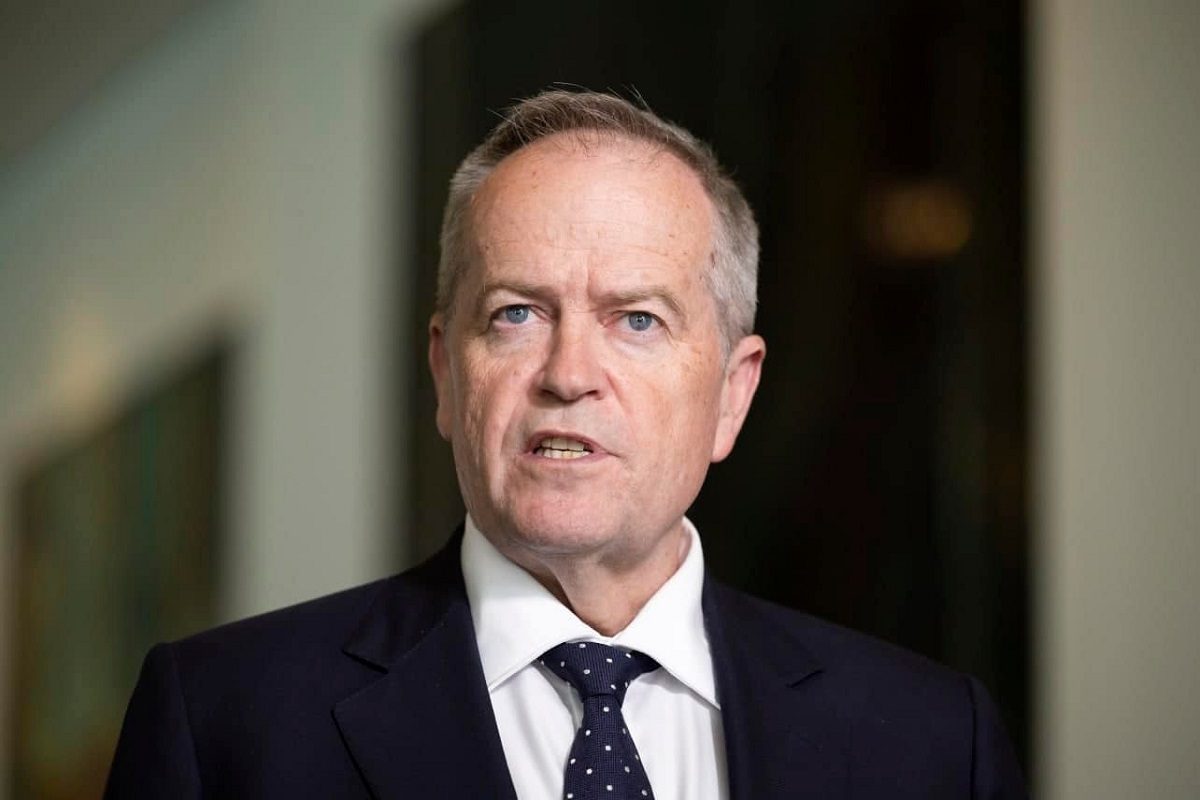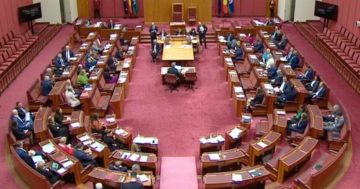
NDIS Minister Bill Shorten is outraged the Greens and Coalition joined up to delay passing the scheme’s reform bill. Photo: File.
A parliamentary committee raising human rights concerns over an NDIS reform bill designed to tackle rorting of the system has sparked an eight-week delay in the new laws passing.
National Disability Insurance Scheme Minister Bill Shorten is furious over the Greens and the Coalition teaming up to send the bill back to committee until August for a Senate vote.
He said the delay would cost Australian taxpayers almost $1 million an hour.
“The NDIS is changing lives. It’s helping hundreds of thousands of people and their families and it’s employing hundreds of thousands of people. It’s doing a lot more good than harm,” the Minister said during a media interview.
“So, yes, it is sustainable in the future, but we’ve all got to join in to make it sustainable for the future.
“That’s why I was incredibly disappointed to see that after legislation which has been the subject of a 12-week Senate committee, the Greens, and inexplicably the Liberals, decided they wanted more time to consult over the next eight weeks – even though the actuary of the scheme has said that delaying some of these reforms to close down loopholes will cost participants and taxpayers a billion dollars over the next 40 days.”
The Labor-chaired committee had already recommended the Parliament pass the reform bill, but then submitted an additional report the following week (last week) flagging some concerns, which the Greens jumped on.
The Coalition was also willing to exploit the concerns.
The bill aims to clarify the type of support accessible to those on the scheme and gives greater powers to the head of the National Disability Support Agency to limit top-up payments.
While specific references to what NDIS payments could not be used on were removed from the original bill, the committee still believed the legislation wasn’t flexible enough to cater to individual circumstances.
The concerns also centre on the bill’s provision for personal and medical information to be requested, and for the NDIS’s overall financial sustainability to be considered when determining individual allowances.
“The objective of ensuring the financial sustainability of the NDIS, while important from a policy perspective, may not in itself be sufficient to constitute a legitimate objective for the purposes of international human rights law,” the committee report said.
“There appears to be a risk that the measures could result in the total funding amounts for participants being reduced and consequently fewer supports being provided and, in such cases, would constitute a retrogressive measure.”
Greens senator Jordon Steele-John appeared to link the concerns to Robodebt, whereby welfare recipients were made to feel like criminals.
“Just like the previous government proactively dropped stories on so-called ‘dole bludgers’ to undermine the calls for a royal commission into Robodebt, it is the view of the Australian Greens that this government is undermining the NDIS in the same way,” Senator Steele-John said.
But by the end of last week, Mr Shorten had had enough and launched a “waste clock” website to show how much the delays would cost taxpayers because of continued rorting by some service providers.
“The truth is the scheme is growing too fast,” the Minister said.
“We know that these automatic top-up provisions are being rorted by some unscrupulous service providers, and the willingness of some senators to turn away and ignore the problems in front of their face is scandalous.”
Liberal senator Jane Hume said the Coalition would support the “sensible recommendations” in the legislation, but added that the government had “dumped a whole series of amendments” on the committee at the last minute and then expected the Senate to pass the legislation amended without any further scrutiny.
“Stakeholders are coming to us and telling us that they’re concerned about how these changes are going to affect [them],” she said.
“It’s much better to do the work now, get the job done and then pass the legislation rather than find out that there’s unintended consequences when it’s too late and the legislation’s been passed.”
In March, the Minister launched a new taskforce to investigate suspected unfair pricing practices in the scheme.
Chaired by the Australian Competition and Consumer Commission, working with the NDIS Quality and Safeguards Commission and the National Disability Insurance Agency, the taskforce aims to crack down on suspected fraud of the scheme.
Original Article published by Chris Johnson on Riotact.









